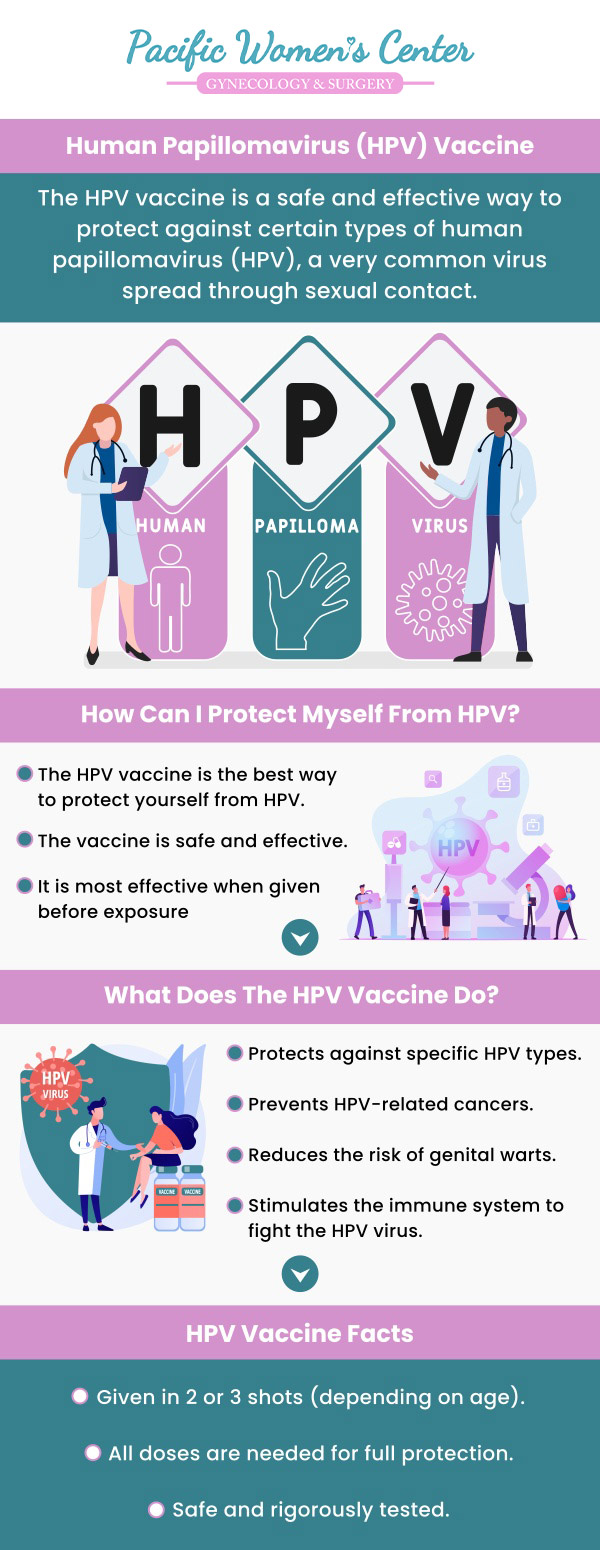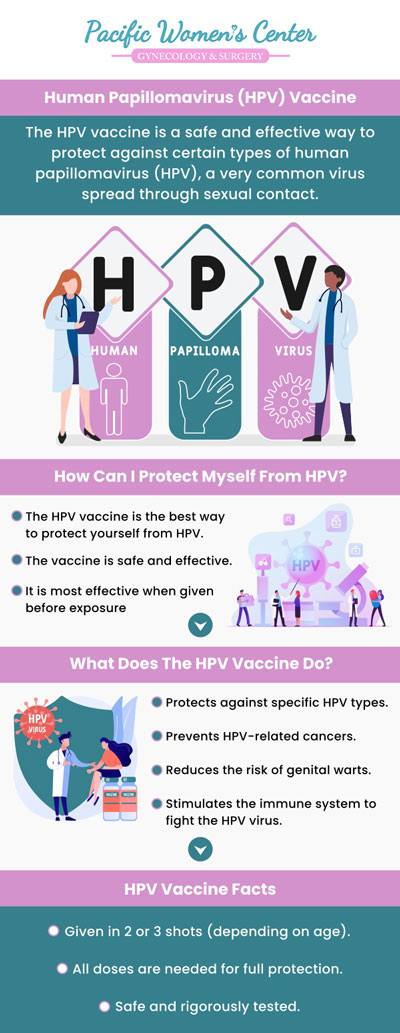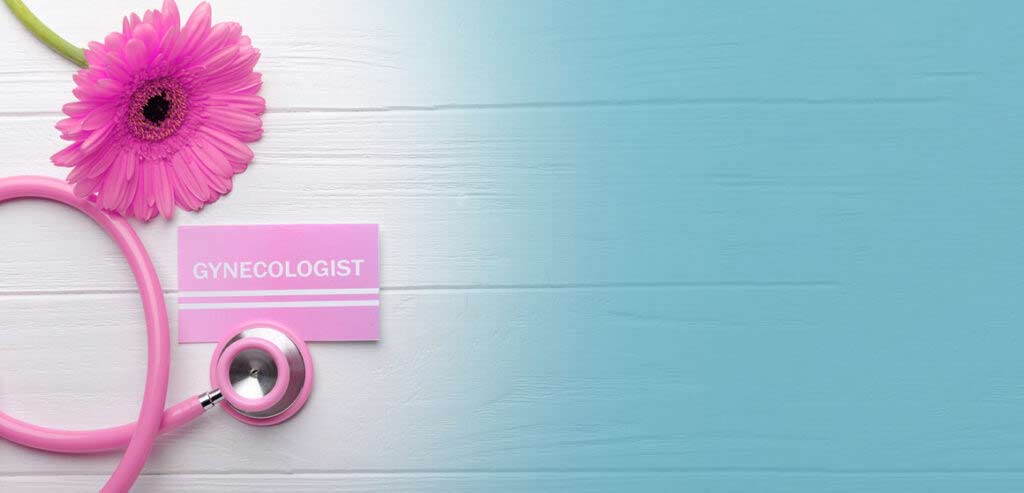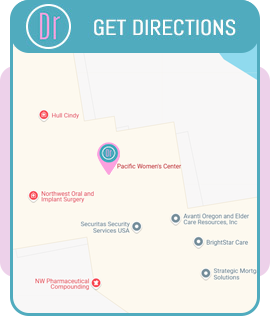Human Papillomavirus (HPV) Vaccine Clinic in Eugene, OR
The HPV vaccine protects against the most high-risk HPV strains, including those responsible for the majority of cervical pre-cancers, cancers, external lesions, and genital warts. The most effective approach to preventing an HPV infection is for children or adolescents to receive the vaccine before engaging in sexual activity for the first time. Learn more about the benefits of getting the HPV vaccine with our trusted doctors, Dr. Richard Beyerlein MD, CPI, FACOG, and Tamara A. Stenshoel, MD, FACOG who will protect you against the most common strains of HPV. For more information, contact us or book an appointment online. We are conveniently located at 911 Country Club Rd. Suite 222, Eugene, OR 97401.




Table of Contents:
What does the HPV vaccine do?
Who is eligible for an HPV shot?
What are the symptoms of HPV infection?
Who is the HPV vaccine most appropriate for and when should it be given?
The HPV vaccine offers protection against a prevalent sexually transmitted virus known as HPV, or human papillomavirus. HPV comprises various types, with most causing no noticeable symptoms and naturally clearing from the body.
However, certain strains can lead to health issues such as cancer and genital warts. Typically, the body can detect and eliminate HPV, but if the virus persists, it may lead to cancer.
The HPV vaccine shields against the specific HPV types responsible for most of these health complications. Administered in a series of shots, individuals under 45 receive three separate doses of the vaccine.
Essentially, the vaccine enables the immune system to recognize certain HPV strains safely, particularly cancer and genital warts-causing strains, making it more efficient at clearing these strains if the person encounters them later.
The HPV vaccine consists of a series of two or three shots designed to safeguard individuals from HPV infections. By prompting the body to produce antibodies, the vaccine helps in binding to the virus and preventing it from infecting cells.
According to recommendations from the Centers for Disease Control and Prevention (CDC), routine HPV vaccination should commence around age 11 or 12.
The vaccine exhibits its highest effectiveness when administered before an individual’s initial encounter with the virus. As a result, the most effective approach to preventing an HPV infection is for children or adolescents to receive the vaccine before engaging in sexual activity for the first time.
However, even if they are already sexually active, it is still advisable for them to undergo HPV vaccination, as other forms of protection do not offer complete protection against HPV infections.
HPV is a prevalent virus capable of affecting various parts of the body. Certain strains of HPV lead to the formation of warts on areas such as the hands, feet, and face, while others can impact the genital region, including the vagina, vulva, anus, and more. Genital HPV is classified as a sexually transmitted infection (STI) transmitted through skin-to-skin contact.
Most HPV infections do not progress to cancer; however, specific types of genital HPV have been associated with the development of cervical cancer and other forms of cancer.
In many cases, individuals infected with a high-risk strain of HPV may not exhibit any visible signs of the infection until it has already caused significant health issues.
This highlights the significance of regular checkups at women’s health centers like Pacific Women’s Center because testing is the only reliable means of determining whether one is at risk of developing cancer due to HPV.
Nearly all cases of cervical cancer are linked to HPV infections, although cervical cancer may take two decades or more to develop following an HPV infection. Moreover, HPV infections and early cervical cancer typically do not present noticeable symptoms.
The HPV vaccine protects against the most high-risk HPV strains, including those responsible for the majority of cervical pre-cancers, cancers, external lesions, and genital warts.
While the HPV vaccine effectively prevents new HPV infections, it does not treat existing HPV infections or related diseases. To achieve the best protection, HPV vaccination is recommended before any exposure to HPV occurs.
The HPV vaccine is considered appropriate for individuals aged 11 through 26. The number of shots required depends on the recipient’s age. Children aged 11-14 typically receive the vaccine in two shots administered over a period of six to twelve months. Teens and young adults aged 15-26 usually receive the vaccine in three shots distributed over a span of six months.
Many sexually active adults have already been exposed to HPV, although not necessarily to all the HPV types targeted by vaccination. Regardless of age, engaging in sexual activity with a new partner poses a risk of contracting a new HPV infection.
HPV vaccine administration is available at Pacific Women’s Center. Learn more about the benefits of getting the HPV vaccine with our trusted doctors, contact us or book an appointment online. We are conveniently located at 911 Country Club Rd. Suite 222, Eugene, OR 97401. We serve patients from Eugene OR, Springfield OR, Coburg OR, Creswell OR, Cottage Grove OR, Lowell OR, Junction City OR, and surrounding areas.

ADDITIONAL SERVICES YOU MAY NEED
❱ Abdominal Hysterectomy
❱ Bladder Lift Surgeon Q&A
❱ Cervical Cone Biopsy
❱ Colposcopy
❱ Endometrial Ablation
❱ Endometrial Biopsy
❱ Female Sexual Dysfunction
❱ Gynecological Surgery
❱ Gynecology
❱ Hormone Therapy
❱ Vaginal Hysterectomy
❱ Endometriosis Diagnosis & Care



